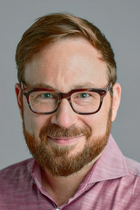Accountability keywords: What counts as accountability and who decides?
Veranstaltungsart
Virtual Workshop
Ort / Datum
Online, 03.02.2022
American Associations of Geographers’ (AAG) Development Geographies Specialty Group, German Development Institute / Deutsches Institut für Entwicklungspolitik (DIE)
In our fourth virtual DGSG-DIE research-in-progress seminar on Thursday, 3 February, 16:00-17:15 CET (7:00-8:15 AM PST / 10:00-11:15AM EST), we are going to discuss a research and policy advisory project by Professor Jonathan Fox, one of the most cited scholars of accountability worldwide and Director of the Accountability Research Center (ARC) at American University in Washington, DC. Participants need to register in advance to receive a copy of the paper and, on the day of the event, the Zoom link to the seminar. Prof. Fox is going to introduce his main arguments briefly at the beginning; those present will then be asked to discuss the paper with a view to co-producing constructive feedback. All participants should therefore read the paper in advance. The seminar will be moderated by Professor Jamey Essex (University of Windsor) and Professor Daniel Esser (DIE). Chatham House rules apply.
Paper abstract:
Accountability is often treated as a magic bullet, an all-purpose solution to a very wide range of problems—from corrupt politicians or the quality of public service provision to persistent injustice and impunity. The concept has become shorthand to refer to diverse efforts to address problems with the exercise of power. The vocabulary of the accountability field communicates ideas about who gets to govern, how they are supposed to govern, who they are supposed to answer to—and how. This working paper unpacks diverse understandings of accountability ideas, using the ‘keywords’ approach, a tradition that takes everyday big ideas whose meanings are often taken for granted, and makes their subtexts explicit. This issue of terminology is not merely academic, and the purpose of this exercise is not theoretical. The goal here is to inform efforts to find common ground between diverse potential constituencies for just and democratic forms of accountability. This analysis is informed by dialogue with diverse advocates and reformers from many countries and sectors, many of whom share their ideas in blogs on the accompanying Accountability Keywords website. Discussion of each keyword weaves together lessons from history, advocates’ experiences, and research. The working paper is guided by the proposition that ambiguous or contested language can either constrain or enable possible strategies for promoting accountability. Indeed, the concept’s fundamental ambiguity is a major reason why it can be difficult to communicate ideas about accountability across disciplines, cultures and languages. Yet that ambiguity can also offer advantages—if it enables coalition-building among actors with different interests and worldviews. That is why the discussion of keywords is especially concerned with learning from efforts to communicate ideas about accountability with words that resonate with popular cultures.
The working paper addresses:
- The landscape of accountability keywords
- What counts as accountability?
- Big concepts that overlap with accountability, but are not synonym
- Accountability with adjectives (for more precision)
- Six widely used keywords in the field
- Seven more specialized keywords
- Accountability sayings
- Propositions for discussion
Hinweis
Während unserer Veranstaltungen werden z.T. Foto- und/oder Filmaufnahmen gemacht, die für Zwecke der Veranstaltungsberichterstattung und allgemeinen Öffentlichkeitsarbeit in verschiedenen Medien veröffentlicht werden. Sie haben jederzeit das Recht, die Foto- oder Videograf*innen darauf hinzuweisen, dass Sie nicht aufgenommen werden möchten. / During our events photos and/or videos may be taken which may be published in various media for the purposes of documentation and PR activities. You have the right at any time to point out to the photographer or videographer that you do not want to be photographed or filmed.
Veranstaltungsinformation
Datum / Uhrzeit03.02.2022 / 16:00 - 17:15
OrtOnline
16:00-17:15 CET, 7:00-8:15 AM PST, 10:00-11:15 AM EST
Registration
Participants need to register in advance to receive a copy of the paper and, on the day of the event, the Zoom link to the seminar.

